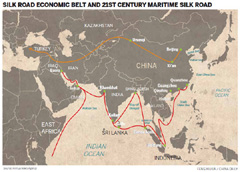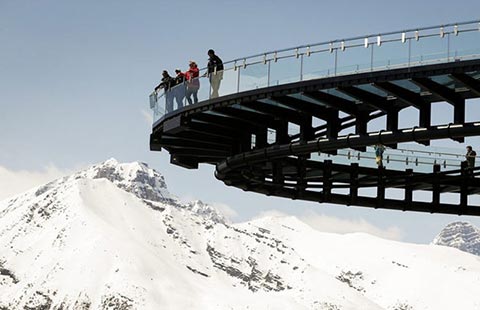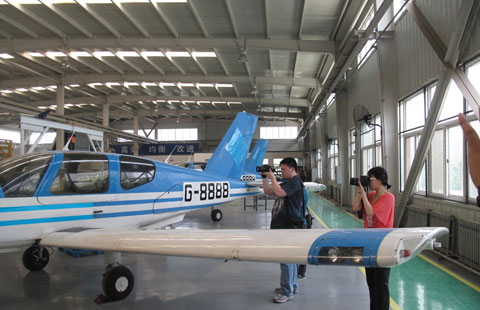Silk Road economic cooperation to bring benefits
(Xinhua) Updated: 2014-05-26 07:53XI'AN - Around 2,000 years ago, caravans of camels carrying goods followed specific routes across Eurasia, overcoming deserts and mountains and linking the continent's east and west sides with silk, jewelry and spice.
Now the journey's eastern destination, the world's second largest economy, is devoting itself to rejuvenating the ancient route named the Silk Road and bringing economic impetus to countries along the path.
|
 |
|
 |
| Tourism to be leading industry along Silk Road |
Masimov Kazimham, deputy dean of the UN International Information Academy in Kazakhstan and international economic consultant of the Xi'an government, hoped for agreements on several investment projects.
One of his projects was an agricultural cooperation program in the area around Almaty, commercial center of Kazakhstan, where 10,000 hectares of farmland is in need of funds from Chinese enterprises.
Meanwhile, merchants from other central Asia countries including Turkmenistan and Uzbekistan have occupied quite a few booths in the exhibition center, their products on display ranging from flour to tapestries embroidered with the pattern of the Ferghana horse.
The Silk Road International Exposition, or the 18th Investment and Trade Forum for Cooperation between East and West China, which started on Friday and ends on Monday, has attracted officials, corporate executives and economists from countries along the route to discuss how to build the Silk Road economic belt and promote common development.
The concept of the economic belt was first proposed by Chinese President Xi Jinping on a visit to Kazakhstan in September, who called for joint efforts from relevant countries to build the belt and boost cooperation.
He proposed that China and central Asian countries work to improve traffic connectivity, trade and monetary cooperation, and people-to-people exchanges.
- Silk road leads to new opportunities
- Silk Road economic belt highlights China-EU cooperation
- State councilor urges cooperation in Silk Road projects
- President Xi calls on China, Germany to build Silk Road economic belt
- Bilateral trust key to Silk Road Economic Belt
- Tourism to be leading industry along Silk Road
- Feast your eyes on aeroplanes as festival takes off
- Fresh bid to build charging network
- Poland's branding in need of polishing
- China's SME board sees fast growth
- The multibillion-dollar house that Jack built
- China's housing market going through natural adjustment
- Silk Road economic cooperation to bring benefits
- Click profit















